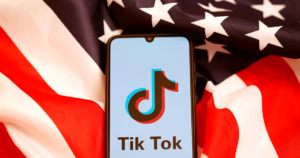Here are the strong Twitter acquirers of which you may not have thought about. During the end of 2016, when Twitter was looking for its sale, a bunch of Twitter users made a petition for appreciating the network to sell it to some of its users, which would mean necessarily convert Twitter into a co-op.
It may sound weird, but this move let people’s attention to exploring the co-op concept, making the selling of network an official affair for all the shareholders of Twitter who are to meet in May 2017.
If the deal gets passed through, it would need Twitter to get prepared and make a report describing the nature of the viability of selling the network to its users, as per the proxy filing of company shows.
Or you can say this as, Twitter requires to look into the deal, although this doesn’t mean that it is bound to sign it too. Not amazingly, the board members of the company are not taking a keen interest in selling the network to its users. Arguing in the proxy meeting, they made a point that the company has a firm belief that making the report for describing the nature and viability of this deal which involves selling the platform to its users, will lead to the dislocation of its resources and a deviation to the board of members including the directors and managers of company.
Even then, the co-op concept demands some attention to be considered.
Twitter itself is a platform which often thinks life it is being dominated by the highly innovative and sound minority. The social influence of the company is vast and outweighs its business section. And those who support the co-op concept feel that if users have owned this company, the stress will be generated which will cause the quarter-over-quarter growth to be diminished.
The petition made by the users included that the wall street feels that the company has been a failure as it is not being ranked sufficiently regarding profit for its shareholders. This means that Twitter is now for sale, and there is an actual risk that the new owner of the company will face some loss due to narrow pursuit of profit and political benefits.
Nathan Schneider, who propose the concept of co-op deal raised the question of how Twitter can work as a co-op firm and made his point that there is a large number of various formats which can work, and that’s why the company needs to look into this option.











